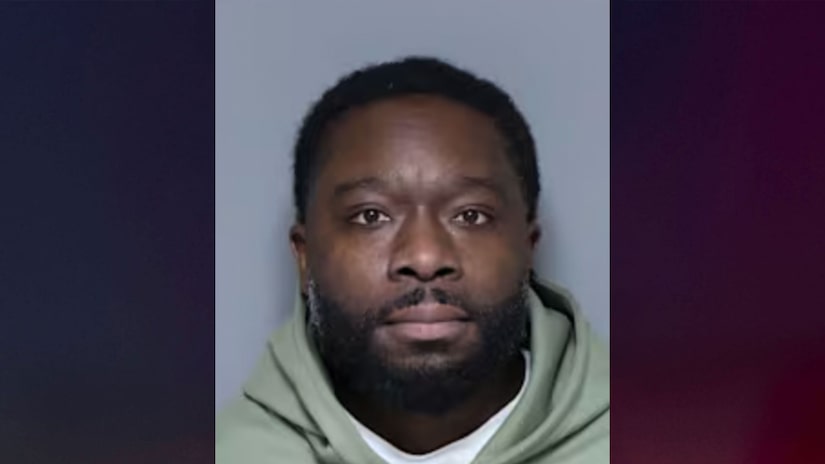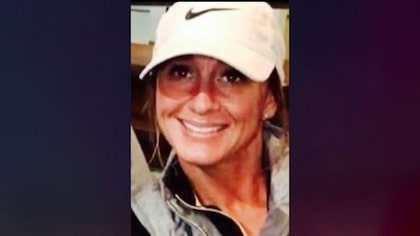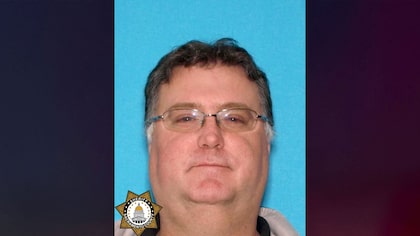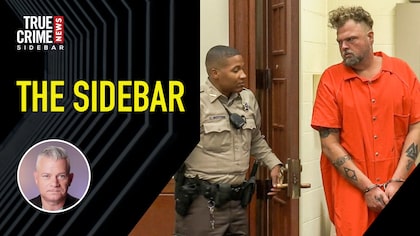Cold case: Austin's brutal yogurt shop murders remain unsolved
10/17/2016 12:29 pm PDT
It's the most notorious murder case in the history of Austin, Texas: Four young girls killed, and their bodies set on fire. But what sets this case apart is what's happened since that day -- including a controversial decision to let two convicted murderers out of prison.
Crime Watch Daily Special Correspondent Nerissa Knight has the story.
The charred bodies of four teenage girls, all shot in the head, were found inside a burned-out yogurt shop in Austin, Texas on Dec. 6, 1991. One of the biggest mysteries haunting Austin is, Who killed these girls?
Amy Ayers, 13, was one of the four murdered girls. It was just before 11 p.m., closing time: Amy and her friend Sarah Harbison were visiting their friends at the yogurt shop. Sarah's sister Jennifer and Eliza Thomas worked there behind the counter.
At 11:03 p.m., three minutes after Eliza and Jennifer closed for the night, the cash register rings up a "no sale" -- police believe that's when the suspects grabbed the money and unleashed an almost unthinkable terror.
Police say the girls were bound and gagged with their own clothes. Amy was sexually assaulted. Then the monsters shot each girl execution-style in the head with a .22-caliber gun. The killers then lit a match, and most of the evidence went up in smoke.
Initially when a police officer spotted smoke and firefighters were called in, it was thought to be a kitchen fire at a chain establishment. However after hundreds of gallons of water were used to douse the three-alarm blaze, two firefighters stumbled upon a horrific scene. The bodies of three of the girls were stacked on top of one another.
Austin Police worked tirelessly to solve the case. Witnesses recalled seeing two mystery men sitting at one of the tables. Who were they?
Eight days later cops arrested Maurice Pierce for brandishing a .22-caliber pistol at a nearby mall. Pierce told cops he and three buddies stole a car and went on a joyride the day after the murders.
"I would describe them as boys that had troubles," said Austin Police Det. Jay Swann.
The ballistics tests were inconclusive. They couldn't connect Pierce's gun to the killings.
The biggest murder case in Austin history soon grew cold.
"It is likely that the perpetrators of this crime entered the building and the motive is speculated as robbery," said Swann.
Eight years passed. Then, Detective Swann's cold-case squad dug through the evidence and took a fresh look at the investigation.
At the Austin Police Department there's a scale model of the murder scene including the mall and yogurt shop. Thousands of hours have been spent on the quadruple-murder case, and there's a mountain of evidence, including a wall of files. Swann says the evidence led them to the four guys they suspected all along: Maurice Pierce and his friends Robert Springsteen, Michael Scott and Forrest Welborn.
It's the most notorious murder case in the history of Austin, Texas: Four young girls killed, and their bodies set on fire. But what sets this case apart is what's happened since that day -- including a controversial decision to let two convicted murderers out of prison.
"You have a couple of issues: One is the destruction of evidence given the extreme heat of the fire," said Det. Jay Swann. "The other would be the contamination that could have been introduced just given the volume of water that was in the crime scene, and that water can very easily cause contamination.
"It is my belief that Maurice pierce was definitely the ringleader," said Swann. "He was the one with the personality that was so charismatic that the others would have followed his lead."
Michael Scott voluntarily spoke to cops in Austin. But thing inside the interrogation room became heated: The detective puts a gun to Scott's head, demonstrating the police theory of what happened. Scott confessed.
By this time Springsteen had moved to West Virginia. After Scott's confession, Austin detectives questioned Springsteen at the police station in Charleston. He too confessed.
Their stories were similar: They both told cops that after casing the joint they returned later that night through the back door off the alley. With those confessions, and other evidence, all four men were charged with murder.
But Maurice Pierce, the alleged ringleader, was released after the charges were dismissed due to a lack of evidence. He was later killed in an unrelated incident with police.
And a grand jury failed to indict Forrest Welborn, citing a lack of evidence.
Springsteen and Scott recanted their confessions and pleaded not guilty. They went to trial. Both men were convicted.
Scott was sentenced to life in prison and Springsteen was sent to death row.
The two men convicted in the gruesome yogurt shop murders were locked away in prison, seemingly forever.
The girls' families felt some sense of closure with the 1999 convictions and sentencing of Michael Scott and Robert Springsteen. But in 2006 both convictions were overturned; then, three years later, the once-convicted murderers were released. Both Springsteen and Scott walked out of the courthouse free men.
Why did they go free? The reasons were legal, but some might say morally unjust. The appellate court ruled that the men's constitutional right to confront each other's claims was violated. But after that controversial decision there were other factors that came to light -- scientific ones.
Years after the murders, advanced DNA testing revealed a bombshell: New results showed the DNA found on Amy Ayers didn't match any of the suspects, and it didn't match anyone in the nationwide database.
Then another shocker:
"I believe it would be imprudent and in fact unfair to proceed to trial at this time," said Travis County, Texas District Attorney Rosemary Lehmberg. "It would be unfair to the jury hearing the case, unfair to our community, and most of all unfair to the victims of these devastating crimes and their families."
In a stunning decision the District Attorney announced she won't re-try the case until they find out who that mystery DNA belongs to.
Robert Springsteen is now taking the city to court to clear his name. He is suing the city of Austin for $700,000.
Travis county prosecutors are hesitant to declare Springsteen innocent, in part because they still consider him a suspect in the murders, and subject to new charges. Springsteen's attorney, Broadus Spivey, says his client is not only innocent, he wasn't even at the yogurt shop the night of the murders.
"There's not a single piece of actual evidence, not a single piece, that ties these boys with the scene," said Spivey.
Why would he confess to a murder he didn't commit?
"It involves questioning a person and dropping hints and suggestions to that person, telling them such things as 'We have a statement from somebody else that said you did it, now you should come clean, it'll be a lot easier on you if you just confess.' But at some point you begin to agree with the interrogator just to get it over with," said Spivey.
And Forrest Welborn, who was once thought to be involved, had the charges dropped due to a lack of evidence.
Welborn has consistently denied he was involved in the killings, and he was never tried in court because there was no evidence connecting him to the crimes.
It's the crime the city of Austin will never forget: No justice for Eliza, Sarah, Jennifer and Amy. Somebody is still getting away with murder.




